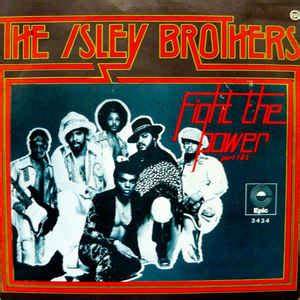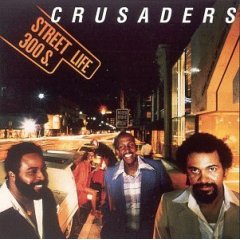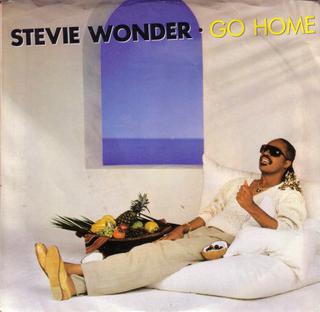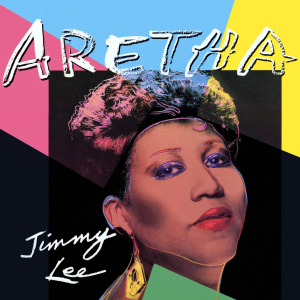
Archie Bell & the Drells was an American R&B vocal group from Houston, Texas, and one of the main acts on Kenneth Gamble and Leon Huff's Philadelphia International Records. The band's hits include "Tighten Up", "I Can't Stop Dancing", "There's Gonna Be a Showdown", "Girl You're Too Young" (1969), "Here I Go Again", "Soul City Walk" (1975), "Let's Groove", "Everybody Have a Good Time" (1977), and "Don't Let Love Get You Down" (1976).

"Le Freak" is a 1978 funk / disco song by American R&B band Chic. It was the band's third single and first Billboard Hot 100 and R&B number-one hit song. Along with the tracks "I Want Your Love" and "Chic Cheer", "Le Freak" scored number one on the disco charts for seven weeks. The single achieved sales of 7 million and also scored number seven in the UK Singles Chart.

"Fight the Power" is a song recorded by the Isley Brothers, who released the song as the first single off their landmark album, The Heat Is On. The song is notable for the usage of the word bullshit, which was censored during radio airplay.

"Boogie Shoes" is a funk/disco song by KC and the Sunshine Band, which first appeared on their 1975 self-titled album. The song became a hit after it appeared on the Saturday Night Fever soundtrack in 1977. It was subsequently released as a single and peaked at number 35 on the Billboard Hot 100 and number 29 on the soul chart in 1978. Before its 1978 release as an A-side, the song was the B-side to the 1976 single "Shake Your Booty".

"Heat Wave" is a 1963 song written by the Holland–Dozier–Holland songwriting team. It was first made popular by the Motown vocal group Martha and the Vandellas. Released as a 45 rpm single on July 9, 1963, on the Motown subsidiary Gordy label, it hit number one on the Billboard Hot R&B chart—where it stayed for four weeks—and peaking at number 4 on the Billboard Hot 100.
"I'm in Love" is a song written by Bobby Womack. It was first recorded by Wilson Pickett in 1967, which gave him a top-ten R&B hit on Billboard's chart in 1968, peaking at number 4 as well as peaking at number 45 on the Billboard Hot 100.

Street Life is a studio album by the American jazz band The Crusaders. It was a top 20 album on three Billboard charts and represents the peak of the band's commercial popularity. The title track, featuring singer Randy Crawford, was a Top 40 pop single and became the group's most successful entry on the soul chart. It was No. 5 on the UK Singles Chart. "Street Life" also hit the disco chart, peaking at No. 75, and was re-recorded by Doc Severinsen with Crawford reprising her vocal for the opening sequence of the noir crime drama Sharky's Machine, directed by Burt Reynolds in 1981. This faster paced version was also featured in Quentin Tarantino's Jackie Brown, released in 1997.

"Go Home" is a song by Stevie Wonder, released as the second single from his twentieth studio album, In Square Circle (1985). The song showcased the narrator's plea to a young woman to go home, though the girl tries to get the narrator to stay with her. In the US, the song peaked at #2 on the Billboard R&B chart and #10 on the Billboard Hot 100 and, to date, is Wonder's last song to reach the US top ten on the Hot 100. "Go Home" also topped both the Billboard dance chart and the Billboard Adult Contemporary chart.

"I'm a Man" is a song written by Steve Winwood and record producer Jimmy Miller. It was first recorded in 1967 by the Spencer Davis Group, in which Winwood sang lead vocals and played keyboards. The song was a hit in the United Kingdom and the United States, reaching No. 9 and No. 10, respectively. It has been recorded by many other performers over the years, most successfully by Chicago, whose version charted at No. 8 in the UK in 1970 and No. 49 in the US in 1971.

"I Don't Want Your Love" is the seventeenth single from Duran Duran and the first single from the Big Thing album. It was released in September 1988. As with the album, the band's name was rendered on the artwork as Duranduran.

"Beechwood 4-5789" is a song written by Marvin Gaye, William "Mickey" Stevenson and George Gordy. It was a 1962 hit single for the Motown girl group The Marvelettes on Motown's Tamla subsidiary record label. The song became a hit again when it was covered by the pop duo The Carpenters in 1982.

"Stomp!" is a song released by the Brothers Johnson from their fourth album, Light Up the Night, in early 1980. It reached number one on the Dance singles chart. In the US it reached number one on the R&B singles chart and peaked at number 7 on the Billboard Hot 100 in early 1980. In the UK it entered the singles chart at number 65 on February 23, 1980, and climbed to its highest position, number 6, by March 30, 1980. It spent a total of 12 weeks on the UK Singles Chart. The song also reached number one on the New Zealand Singles Chart, staying in this position for six weeks in 1980.

"Another Star" is a song written and performed by Stevie Wonder from his 1976 album Songs in the Key of Life. It is the final track on side four of the double LP. The flute player Bobbi Humphrey appears in the last section of the song.

"(Every Time I Turn Around) Back in Love Again" is a hit song written by Len Ron Hanks and Zane Grey for R&B/funk band L.T.D. Released from their Something To Love album, it spent two weeks at number one on the R&B singles chart in the fall of 1977. It became a gold record. Jeffrey Osborne is the lead singer.
"Lovely One" is a funk single released by American family group the Jacksons on September 27, 1980.
"634-5789 " is a soul song written by Eddie Floyd and Steve Cropper. It was first recorded by Wilson Pickett on December 20, 1965 and included on his 1966 Atlantic Records album The Exciting Wilson Pickett with backing vocals by Patti LaBelle and the Blue Belles. The single reached number 1 on the Billboard Hot Rhythm & Blues Singles chart and number 13 on the Hot 100 singles chart.

"Jimmy Lee" is a song written by Narada Michael Walden, Lisa Walden, Preston Glass, and Jeffrey Cohen for American singer Aretha Franklin, who recorded it for her 1986 album Aretha. Produced by Narada Michael Walden, the track was released as the lead single from the album in late 1986.
"Free Man" is a 1975 song by South Shore Commission. The song went to number one for one week on the Billboard disco/dance chart. The single also peaked at #61 on the Billboard Hot 100 and #9 on the R&B chart.
"K.I.S.S.I.N.G." is a 1988 single by singer/songwriter Siedah Garrett, taken from her album Kiss of Life. The single was her most successful release as a solo artist, hitting number one on the dance chart for one week. On the soul chart, "K.I.S.S.I.N.G." peaked at number sixteen and on the Billboard Hot 100, it went to number ninety-seven.
"Once You Get Started" is a horn-driven funk number written by musician Gavin Christopher, and recorded and released by the band Rufus featuring Chaka Khan in late 1974. The song is led mostly by Khan, though fellow group member Tony Maiden contributed lead vocals for the song's second verse. It helped to make their third album Rufusized go platinum. "Once You Get Started", peaked at number ten on the Billboard Hot 100 in 1975, giving the group their second top ten single and third top forty single overall. The song also hit number-four on the Hot Soul Singles chart as well as number six on the Record World, Disco File Top 20 chart.













